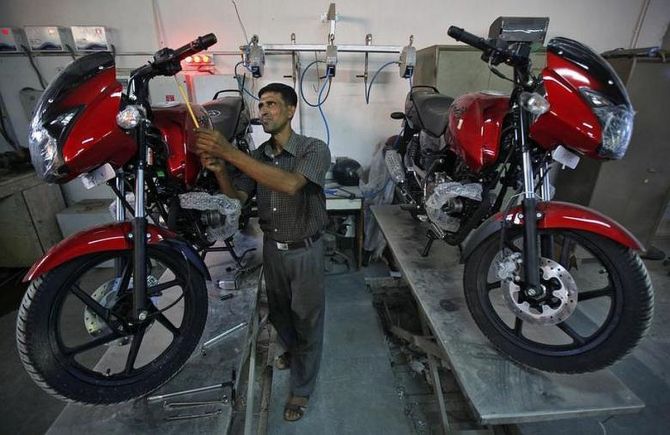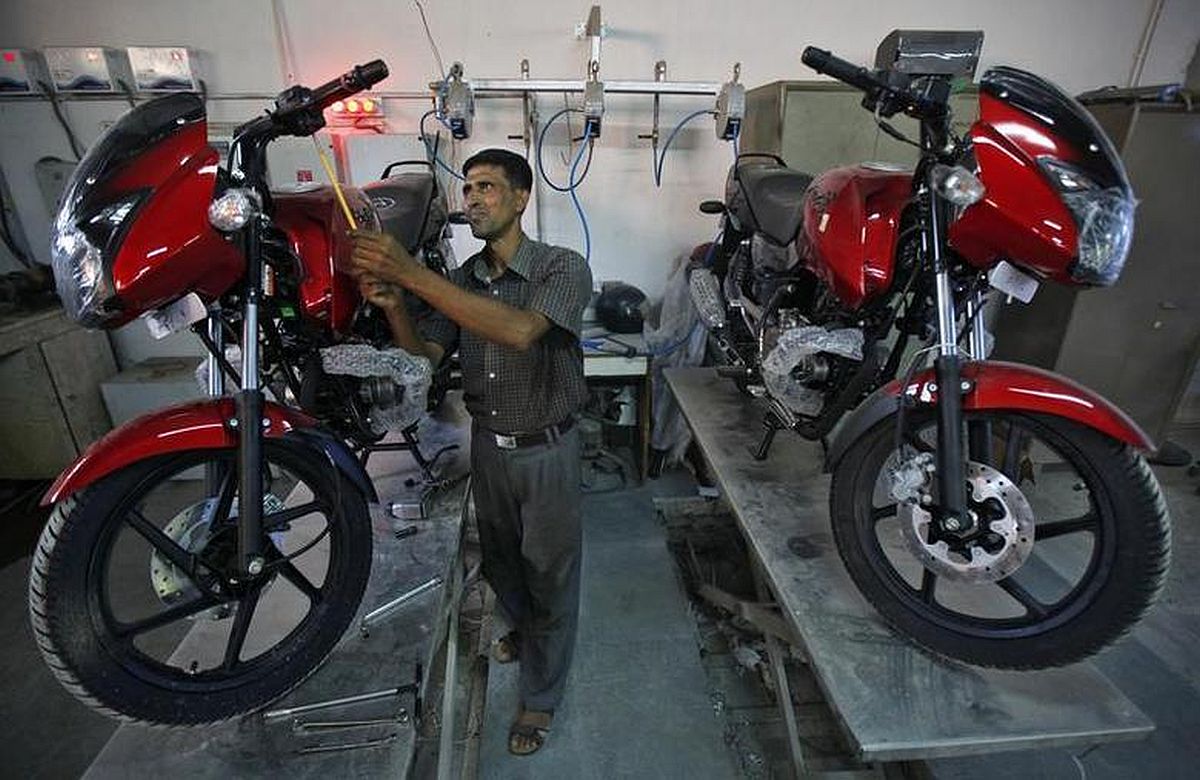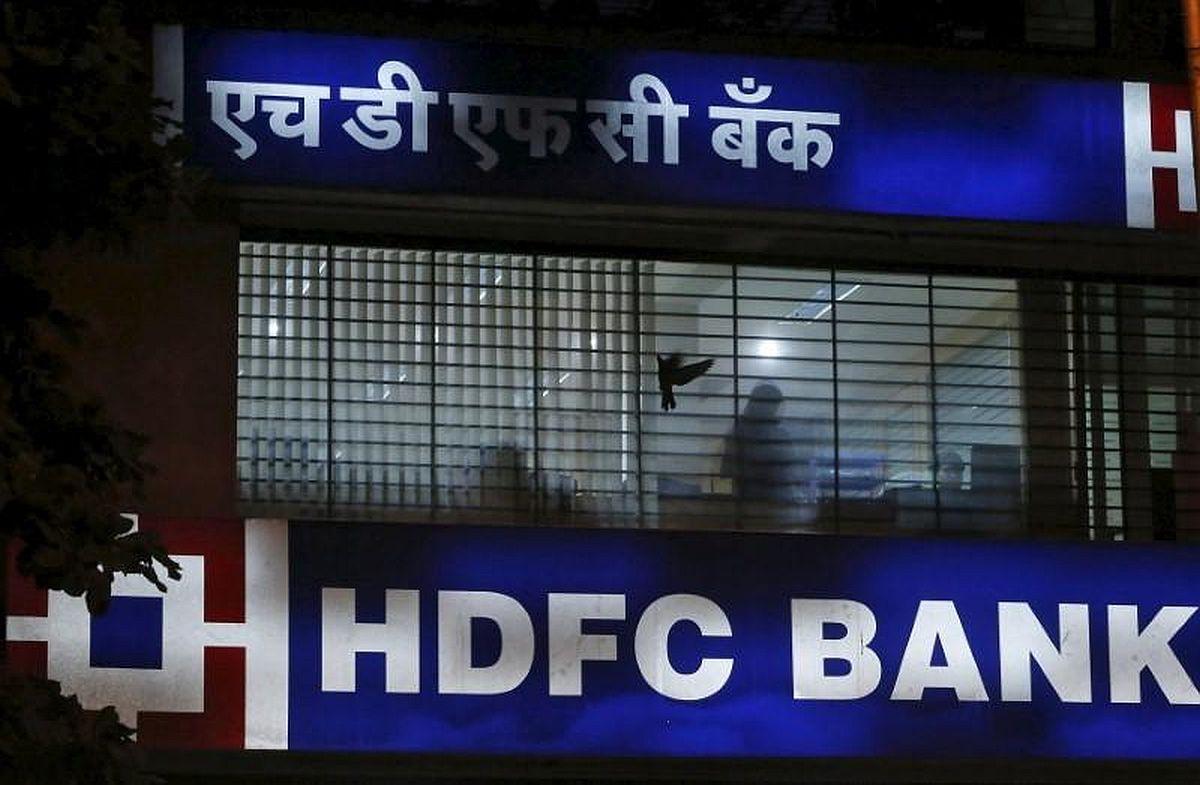Bajaj Auto — the country’s most valuable two-wheeler (2W) company by market capitalisation — met Street expectations in the January–March quarter (Q4) of 2024–25 (FY25) but still ended Friday as the worst performer on the Nifty 50, slipping 3.1 per cent.

Photograph: Rupak De Chowdhuri/Reuters
While operating margins held steady during the quarter, the market is uneasy about the company’s shrinking share in the domestic motorcycle segment.
Any further upside for the stock will hinge on how soon KTM turns the corner. Analysts believe gains in electric two-wheelers (e2Ws) and exports are already priced in.
Q4 sales came in slightly ahead of expectations, rising 6 per cent year-on-year (Y-o-Y), led by a 2.5 per cent increase in realisations and a 3.4 per cent rise in volumes.
Sequentially, realisations improved by 5 per cent, supported by a more favourable product mix, including a higher share of exports and e2W sales.
Gross margins rose 40 basis points (bps) Y-o-Y on the back of favourable currency movements and an improved product mix, but operating margin gains were limited to 10 bps.
Weaker KTM exports and increased marketing costs partly offset the benefits of higher volumes, pricing, and mix.
The company expects the domestic 2W market to grow 5–6 per cent, driven by the premium 125cc-and-above segment.
Key growth levers for Bajaj Auto include scale-up in e2Ws and a recovery in export volumes.
Exports continue to recover, with Q4 overseas sales up 20 per cent Y-o-Y.
Stronger demand in key international markets, the gradual restart of KTM exports, and capacity expansion in Brazil are expected to support 15–20 per cent Y-o-Y growth in each quarter of 2025–26 (FY26).
The market’s biggest concern, however, is the erosion of share in the 125cc and premium segments amid intensifying competition.
Bajaj Auto lost over 200 bps in both these categories in FY25.
To regain lost ground, the company is planning a series of product refreshes, including six new Pulsar variants in the 150–200cc range with enhanced features.
Analyst Aniket Mhatre of Motilal Oswal Research says: “While the recovery in exports and a steady ramp-up of Chetak (e2W) and three-wheelers (3Ws) are positives, the drop in domestic motorcycle share, particularly in the bread-and-butter 125cc+ segment, remains a key concern.
“Further, the ramp-up of its compressed natural gas bike Freedom has been slower than expected.”
The brokerage has a ‘neutral’ rating with a target price of ₹8,688 and views the stock as fairly valued.
The turnaround of Pierer Bajaj AG — the holding company of the listed Pierer Mobility AG and parent of KTM — is another variable to watch.
Analyst Rishi Vora of Kotak Securities says, “The acquisition of a controlling stake in Pierer Mobility calls for caution, given the company’s financial strain and the complexity of reviving a struggling premium brand in a shifting global market.”
According to the brokerage, the stock trades at 25x FY26 earnings, implying double-digit profit growth over 15 years — a tough ask in a market where 2W household penetration is already high at 58–60 per cent. Kotak has a ‘sell’ rating and a target price of ₹7,250.
While Bajaj Auto has made strides in e2Ws, supply constraints from China — especially rare earth metal shortages — remain a concern.
The company also expects input costs to rise by around 1 per cent sequentially in the first quarter of FY26 and has partially passed this on to consumers.
With the rupee appreciating against the dollar, currency could become a headwind.
Analysts Saksham Kaushal and Sahil Malik of JM Financial Research note that the share of electric vehicles has crossed 20 per cent, driven by an expanded portfolio and scaled-up production and distribution networks for e2Ws and e3Ws.
However, this growth, coupled with limited ability to pass on commodity cost inflation and adverse foreign exchange trends, is likely to put pressure on margins in the near term.
The brokerage has lowered its FY26 operating margin estimate by 80 bps and trimmed 2026-27 estimates by 20 bps.
It has a ‘hold’ rating with a target of ₹8,800.




